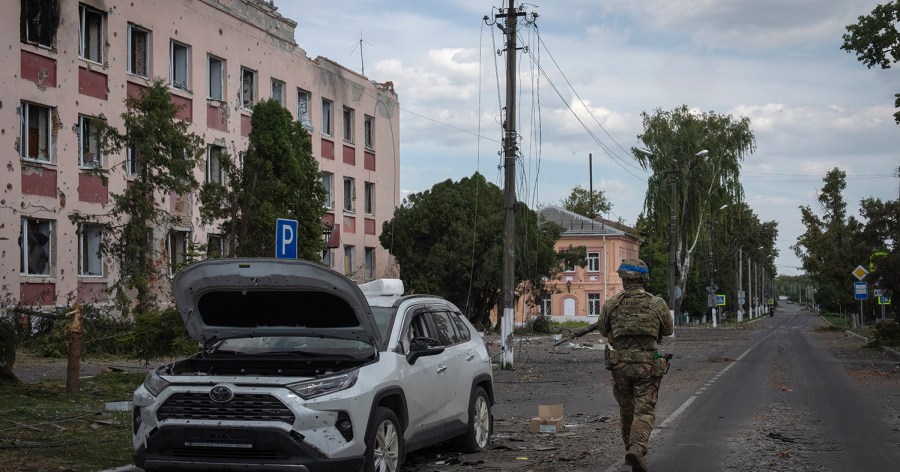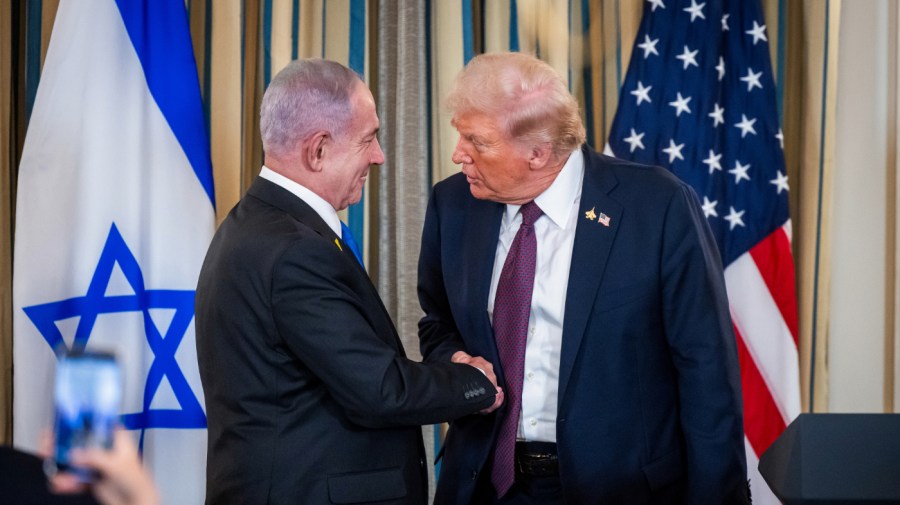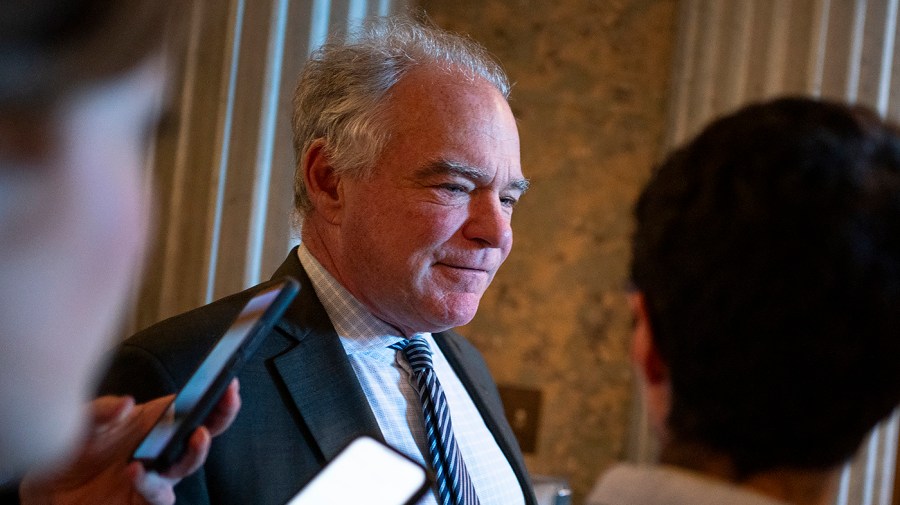Ukraine doubles down on Kursk before Trump takes office

Ukraine is leaning into its efforts to hold Russia’s Kursk region amid intense pressure from Russian and North Korean forces to reclaim it, and appears to be betting that the region could be a valuable card in potential negotiations with Moscow.
After weeks of Russian and North Korean advances on Kursk, Ukraine launched a minor offensive on Sunday to push back forces and maintain its grip on the 300-square-mile area still controlled by Ukrainian forces.
With less than two weeks before President-elect Trump takes office with a promise to negotiate an end to the war, Ukrainian President Volodymyr Zelensky appears to be emphasizing Kursk as a strategic imperative and a bargaining chip, despite lingering questions about the significance of the operation. Tactical value.
Zelensky described the Kursk operation, which was launched in a surprise offensive in August and was the first time Russia had been invaded by a foreign ally since World War II, as “one of our biggest victories, not only last year but throughout the war.”
Russia had to withdraw nearly 60,000 troops from the Ukrainian front to deal with it. “As of Monday, five months have passed since our forces maintained a buffer zone on Russian territory,” he wrote on Thursday on the social platform X.
Ukraine is likely to have the ability to hold those territories for the foreseeable future, but the forces face a stark challenge against about 12,000 North Korean soldiers allied with Russian forces in Kursk.
Serhiy Grabsky, a reserve colonel in the Ukrainian army, said the new advance in Kursk is more about military strategy than negotiations and is focused on distracting Russia.
“The main idea of this, in simple words: to keep Russian forces busy,” he said.
It’s also about a message to Trump, Grabski said.
He added, “This measure… shows the Western alliances that Ukraine has not lost its combat capabilities, and that Ukraine can and will resist with or without American support.”
Since Russia began reclaiming territory in the fall, Ukraine has lost about 40% of the land it once controlled in Kursk. But a senior defense official said that despite the pressure, Ukraine “continues to withstand an extraordinary array of Russian attacks” in Kursk and on Ukraine’s eastern front lines.
The official told reporters this week that Kiev could only be in a position to negotiate with Russian President Vladimir Putin by putting more pressure on Moscow.
“Our calculations are that Putin is not the type to give up something he doesn’t have to give up,” the official said. “Putin will be more impressed when faced with negotiations, and while facing a war in which he has not yet achieved his goals and which is accumulating costs, he will be more inclined to be reasonable.”
The new Ukrainian attack targets the cities of Berdin and Bolshoi Soldatskoye, north of Sudja, but it was a limited effort, as it succeeded in securing three Russian villages and about nine square miles.
Russian military bloggers claimed Thursday that Ukraine has been cleared of Berdin, and that Russian forces are advancing northwest and southeast of Sudja, according to the latest report by the Institute for the Study of War.
Mick Ryan, a retired Australian Army major-general who closely follows and writes about Ukraine, said his country was likely using the opportunity to inflict losses on Russia. Zelensky said this week that Russia had suffered 38,000 casualties in Kursk.
He added: “They have imposed a large number of casualties on the Russians and North Koreans recently, and they saw an opportunity to either control more territory or even get out of the front line.”
Ryan said Ukraine would also benefit from retaining as much territory as possible when negotiations begin.
He said: “Russia occupies 18% of Ukraine, and the area of Kursk is much smaller than 1% of Russia.” “There is a fairly large difference in the terrain. However, it is always better to hold some enemy territory when you enter into negotiations.
Ukraine faces a ticking clock as Trump prepares to take office on January 20. The president-elect campaigned on a promise to end the war during his first day in office, but he has scaled back those ambitions in recent weeks.
Both sides face severe challenges, with Russia suffering heavy losses and facing economic stagnation, while Ukraine struggles to secure manpower and stability.
Rafael Luce, a policy fellow at the European Council on Foreign Relations, said he was unsure whether Ukraine could hold on to the Kursk region for much longer, describing the region as “increasingly difficult to defend.”
“If the Ukrainians can prove over the next two months that they will not be isolated in Kursk, and that the overall situation of the Russian Armed Forces inside Ukraine and on the entire front continues to deteriorate at an unsustainable rate, then we might very well be part of the negotiations.”
“But at this point, I think the Kremlin is probably looking at trend lines that look bad for Russia, but look worse for Ukraine,” Luce added.
President Biden has tried to strengthen Ukraine’s hands in the upcoming negotiations. The United States sent $122 billion in total aid to Ukraine, including about $66 billion in military aid.
“If she were to supervise such negotiations, [we want] To be sure [Ukraine is] “We are doing this from a position of strength and that President Trump can get the strongest possible deal,” Secretary of State Antony Blinken said at a news conference Wednesday in Paris.
The latest security aid for the Biden administration was announced Thursday, and several billion dollars approved by Congress will remain for the Trump administration.
Trump has offered few details about how the war will be resolved, but his top envoy to Ukraine, Keith Kellogg, has called for the threat of withdrawing aid to convince Kiev to come to the negotiating table and increase weapons if Moscow becomes an obstacle in the talks.
The focus of the discussions is said to be that Russia will demand the four territories it occupies in eastern Ukraine in exchange for security guarantees for Ukraine.
But Robert Kagan, a senior fellow at the Brookings Institution, said Ukraine “will likely lose the war within the next 12 to 18 months,” and that Putin is not interested in real negotiations that keep Ukraine safe.
“Ukraine will not lose in a gentle, negotiated way, sacrificing vital territory, but an independent Ukraine will remain alive, sovereign, and protected by Western security guarantees,” he wrote in an article for The Atlantic magazine. “It faces instead complete defeat, loss of sovereignty, and complete Russian control.”
Kagan said Trump should consider a choice “between accepting a humiliating strategic defeat on the world stage and immediately doubling down on U.S. support for Ukraine while there is still time.”
Since the invasion of Kursk, Ukraine has faced questions about whether the operation is withdrawing important weapons and manpower from the front lines in the east, where Russia continues its advance, especially in the Donetsk region.
But Zelensky and other Ukrainian officials insist that the Kursk offensive was vital in redirecting Russian forces from the front lines, taking out military assets, creating opportunities for prisoner exchanges and seizing territory that could be used for negotiations.
The limited nature of the Kursk operation may indicate that Ukraine is sensing Russia’s capabilities and could lead to a larger offensive maneuver, said Brock Berman, a visiting senior fellow at the German Marshall Fund.
Berman also said that Ukraine would benefit from any operations to strengthen its position “as the time approaches when the Trump administration takes office.”
“They will do anything they can do in advance, whether Russia or Ukraine, they will do everything they can because once the Trump administration arrives, it will be much more important,” he said. “I look at both sides trying to take advantage as much as they can because Trump is going to end this war one way or another.”




Post Comment